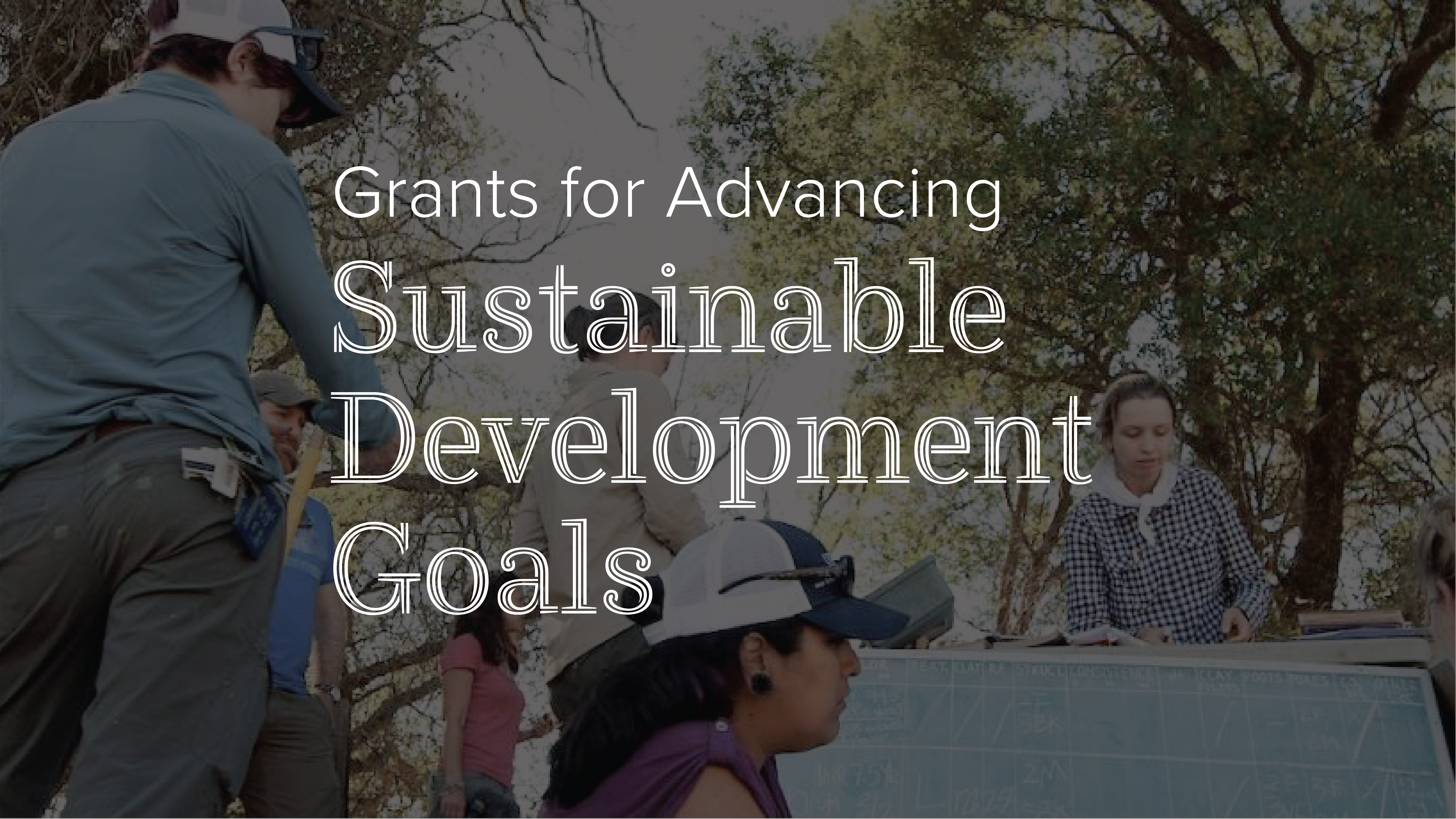Congratulations to our 2021-22 Grants for Advancing Sustainable Development Goals Recipients
This year, Global Affairs offered Grants for Advancing Sustainable Development Goals as a part of a growing partnership with Sustainability and the Office of Diversity, Equity, and Inclusion. These team-focused grants of up to $7,500 fund global and multidisciplinary programs that enhance UC Davis’ connections to the UN Sustainable Development Goals (SDGs).
A set of broad yet ambitious goals that address the universal need for sustainable development, the SDGs were adopted by all UN member states in 2015 as part of the 2030 Agenda for Sustainable Development. The 17 goals—such as ending hunger, ensuring clean water, and combating climate change—provide a common global framework to achieve sustainable development across economic, social and environmental dimensions.
On campus and around the world, UC Davis faculty, students, and staff are addressing all 17 SDGs in various teaching, research, and service activities. The Grants for Advancing SDGs support work already underway and spark new partnerships. This year’s seven selected projects contribute to 11 of the 17 SDGs—locally and globally—bringing together more than 20 faculty, researchers, and students from across UC Davis and collaborating institutions worldwide.
2021-22 Grant Recipients
Floating Photovoltaic Solar Energy and Waterbird Conservation: Aligning Sustainable Development Goals
Rebecca R. Hernandez is an associate professor of ecology and earth system science, interdisciplinary ecologist in the Department of Land, Air and Water Resources and co-founder of the Wild Energy Initiative. She is also a first-generation college graduate, a CAMPOS scholar and part of a small group of Mexican-American faculty members. For this grant, Hernandez is teaming up with Gwen Arnold, associate professor of environmental science and policy and co-director of the Center for Environmental Policy and Behavior, and Majdi Abou Najm, associate professor of soil biophysics and associate director of initiatives at the John Muir Institute of the Environment. Their project aims to develop greater alignment for achieving SDG 7: Affordable and Clean Energy, SDG 14: Life on Land, and SDG 15: Below Water.
Leveraging the Sustainability of Giant Kelp as a Feedstock to Produce Ingredients for Food, Animal Feed and Industrial Applications
Juliana Maria Leite Nobrega de Moura Bell is an associate professor in the Department of Food Science and Technology and CAMPOS faculty scholar. She is collaborating with Daniela Barile, a chemist and professor of food science technology, and Neill J. Goosen, a researcher with Stellenbosch University. Their project will contribute to the advancement of SDG 3: Good Health and Well-Being, SDG 9: Industry, Innovation and Infrastructure and SDG 12: Responsible Consumption and Production.
Synergistic Deployment of Novel Perovskite Electroreduction Mediators: Improving Air Quality and Energy Efficiency through Integrated Computational and Experimental Materials Chemistry
Jesús M. Velázquez is an assistant professor of chemistry, a CAMPOS scholar and a recipient of a prestigious fellowship from the American Physical Society in 2021. For this grant, he joins forces with Ambarish Kulkarni, an assistant professor of chemical engineering whose research group designs functional materials using molecular simulations, and Diego Solis Ibarra, a chemistry researcher at the National Autonomous University of Mexico. Their combined international efforts support SDG 7: Affordable and Clean Energy and SDG 13: Climate Action.

Diverse Group of 2022 Grant Recipients Advance United Nations Sustainable Development Goals
On March 3, 2022, three research teams were honored with $7,500 in grant funding each to contribute to the achievement of the United Nations Sustainable Development Goals (SDGs). The grants were announced at the seventh annual Global Affairs International Connections Reception. The Grants for Advancing Sustainable Development Goals, offered in conjunction with Sustainability and the Office of Diversity, Equity and Inclusion were established to support the 17 SDGs through faculty outreach, university research and international collaboration.
